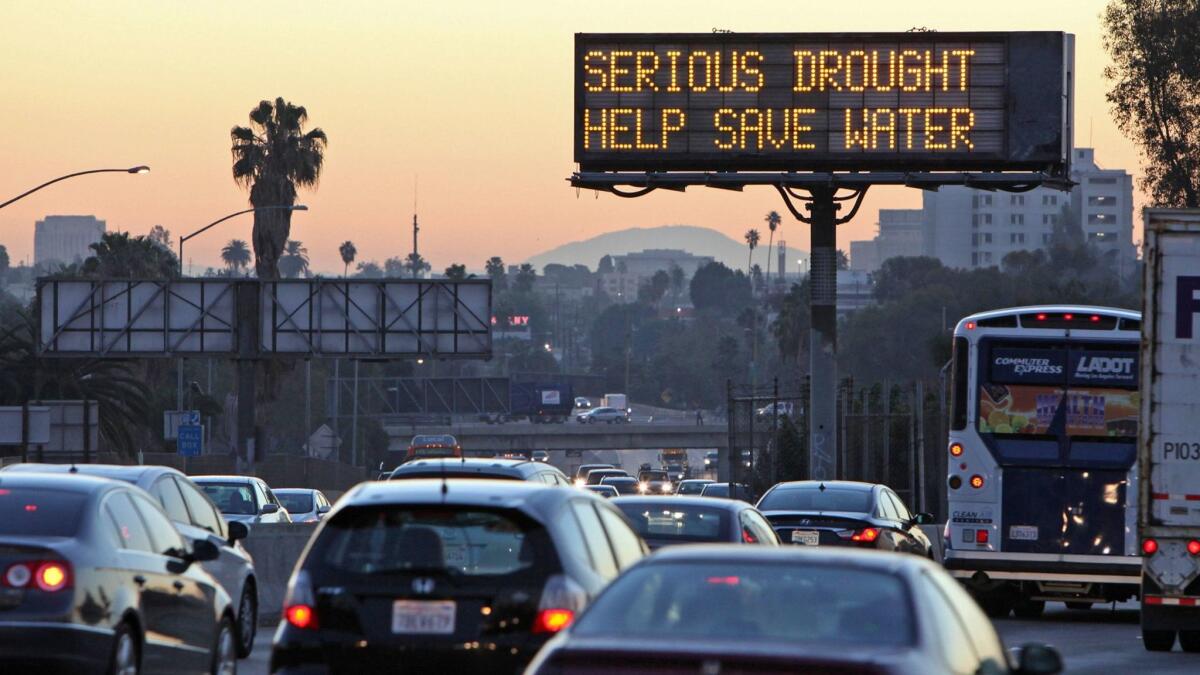Commentary: I drive a hybrid, eat vegetarian but am not doing enough to combat climate change

- Share via
I fancy myself an environmentalist. I recycle, backyard compost, have rooftop solar, rarely use AC, drive a hybrid, don’t have a lawn and eat vegetarian.
Yet, I am as responsible for climate change as the next guy.
Doing those things makes me feel good about myself, but it doesn’t move the world closer to solving the climate crisis. My journey to this conclusion began by looking into my personal carbon footprint.
The U.S. EPA’s carbon footprint calculator, for example, looks at three sources of greenhouse gas (GHG) emissions: home utilities, vehicle fuel efficiency and waste generation. In these areas, my carbon footprint is roughly half that of other people living in my ZIP Code.
However, roughly two-thirds of Americans’ GHG emissions are embedded in so-called “indirect” emissions released during the production of all the other things we consume, such as food, household supplies, apparel, air travel and services of all types, according to the nonprofit Center for Global Development’s analysis.
Furthermore, higher-income suburbanites like me generally consume more goods and services, ratcheting up their carbon footprint compared to people in lower income brackets.
Despite my efforts to live “green,” my lifestyle is highly energy intensive, as is that of the average American who is responsible for GHG emissions equivalent to dumping about 20 tons of CO2 into the atmosphere annually, according to the Guardian.
According to the U.S. Energy Information Administration, U.S. energy consumption in 2016 totaled 97.4 quadrillion BTUs (British thermal units). Converting to familiar units and to a per capita basis averaged around the clock, the typical American lifestyle consumes energy at a rate of roughly 10 kW (kW=1000 watts), equivalent to having a staggering 100 personal energy servants cranking away 24/7.
My feel-good actions to decrease my carbon footprint don’t amount to a drop in the bucket. Solving the climate crisis is going to require either wholesale chucking of the American lifestyle or a nationwide collective shift from a fossil fuel to a sustainable energy economy, the only realistic remedy.
Collective action at the federal level is imperative. There are only two legislative solutions on the table, a carbon tax and cap-and-trade. It is incumbent upon us all, as citizens, to familiarize ourselves with both approaches and to pressure our representatives in Washington to speedily enact a national legislative fix.
Even conservative economists widely view a simple carbon tax as the most workable solution at the federal level to transitioning to clean energy: It’s less costly than other approaches, which conservatives tend to oppose, like regulations, subsidies and mandates, and can be easily adopted by other countries.
The most important contribution of personal actions to decrease one’s carbon footprint is to set the psychological framework for wholehearted endorsement of collective action. Because of the enormity and urgency of the climate crisis, “walking the talk” as an environmentalist means going beyond personal behaviors to promoting collective action.
SARAH MOSKO lives in Santa Ana.
All the latest on Orange County from Orange County.
Get our free TimesOC newsletter.
You may occasionally receive promotional content from the Daily Pilot.



